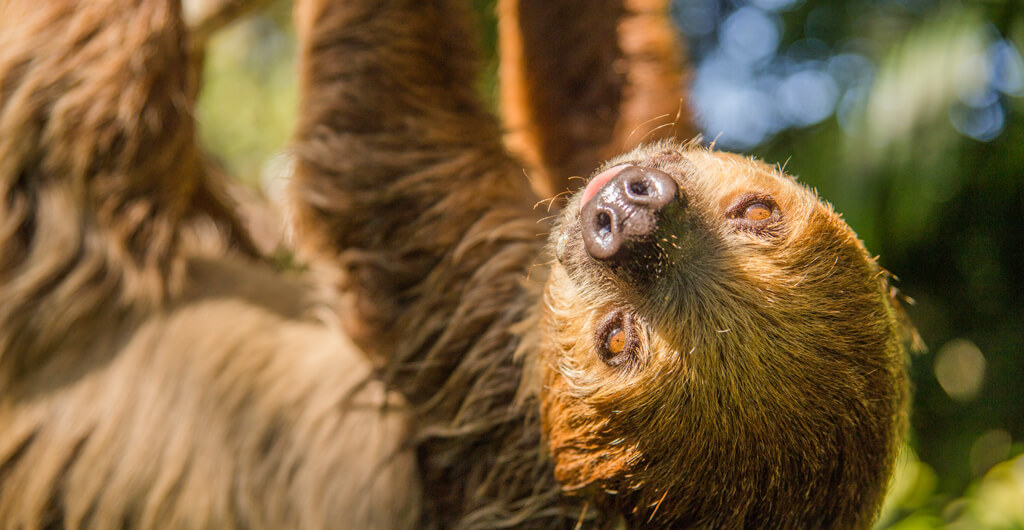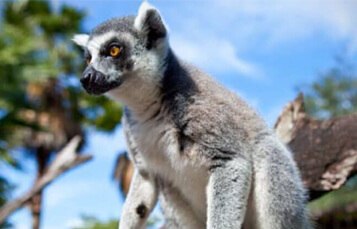Sloths are tree-dwelling animals known for their slow-moving lifestyle. Native to Central and South American rain forests, sloths are well adapted for living high in trees due to their uniquely large nails on their hands and feet that allow them to hang from branches. Sloths spend almost their entire life upside down in the trees. They eat, sleep, mate and give birth from this position hanging high among the branches. Sloths are herbivores, which mean they eat a plant-based diet.
Guests can get up close to sloths at Animal Connections, Busch Gardens’ home to animal ambassadors.
Location: Animal Connections in Nairobi







